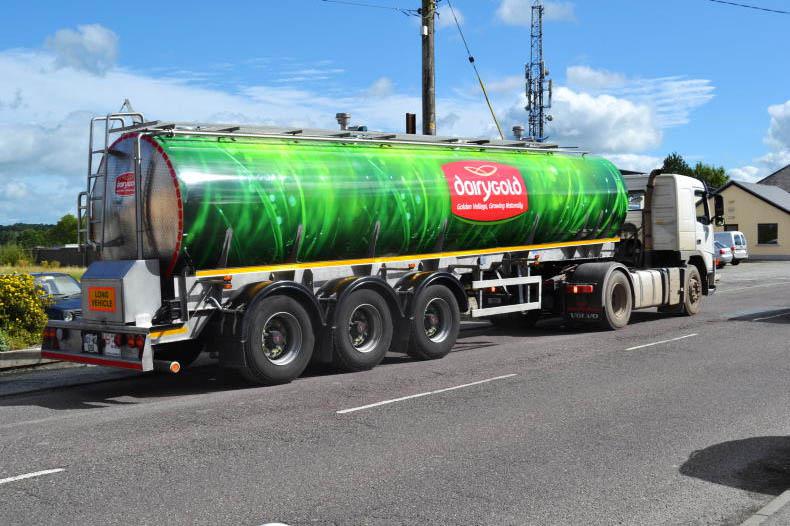Just for a moment, imagine yourself buying a house in an affluent suburb of South Dublin. Although it’s not a new house, you pay €740,000 for this property. It’s a bit of a doer-upper but given its prime location you feel it could be worth a lot more in time after some refurbishments and a bit of TLC.
Imagine then, after just two years in the house, that the property market in Dublin begins to weaken. Sensing an opportunity, a property developer decides to make you an offer for the house. However, their offer is only €734,000 – less than you invested just two years ago.
On the other hand, the property market might recover
Would you be inclined to sell? On the one hand, your house is now in negative equity and its value could decline even further, exacerbating your losses. On the other hand, the property market might recover and the improvements you’ve begun to make to the house could see its value increase substantially in the years ahead. What to do?
It’s a simplified analogy, but the above scenario is what’s being asked of Aryzta shareholders right now, many of whom are Irish co-ops such as Arrabawn, Aurivo, Centenary Thurles, Dairygold, Kerry Co-op and Tipperary Co-op.
Capital
It’s only two years since Aryzta went to the financial markets and raised €740m in cash by issuing new shares.
At the time, Aryzta’s management team, led by Kevin Toland, promised to use this injection of cash to reduce its weighty debt burden, as well as to initiate a turnaround programme called Project Renew that would yield hundreds of millions in cash savings.
But now, just two years later, Kevin Toland is gone as CEO and US private equity fund Elliott Advisors has tabled a takeover offer of €734m for Aryzta, which is obviously less than the total capital raised back in 2018.
Two years later, the company’s market valuation has almost halved to €625m
For many Aryzta shareholders, the last five years must seem like one crushing defeat after another. In 2018, when the company raised the €740m from investors, Aryzta as a company was valued at more than €1.2bn. Its annual sales stood at €3.4bn and underlying profits were a little over €300m, giving the business a near 9% profit margin.
Two years later, the company’s market valuation has almost halved to €625m, meaning it is now valued at less than all the cash it raised from investors in 2018. Aryzta has cut its net debt by about €500m as promised but the deterioration in its underlying profitability means it remains highly leveraged overall.
As of the end of its 2020 financial year in July, Aryzta’s net debt position relative to profits remains stubbornly high at 3.7 times earnings. Shareholders are rightly frustrated that after investing such a significant amount of cash to cut its debt levels, the company’s balance sheet remains in a precarious position.
Future
So what will now happen to Aryzta? The bakery giant held its AGM this week where shareholders overwhelmingly voted in favour of a raft of board changes. The new board of directors is now dominated by a strong Swiss influence and the three US board members have been removed.
This new board, chaired by Urs Jordi, takes office with a strong mandate from shareholders to instigate the turnaround plan they outlined earlier this summer. In that regard, you would have to think the friendly takeover approach from Elliott is going nowhere.
There are many Aryzta shareholders (and you can probably include the Irish co-ops in this cohort) who might be tempted to accept the Elliott offer after so many years of falling share prices and wealth destruction.
However, the largest shareholder group in Aryzta, led by Spanish asset management firm Cobas, has been vocal in its opposition to the takeover approach.
The recent noises from Cobas and others suggest this is not likely but stranger things have happened
After all, the current offer from Elliott would leave them in negative equity compared to the cash they injected to Aryzta two years ago. If Elliott were to increase its offer above the €740m mark, could some of these large investors be tempted to cut their losses and cash out?
The recent noises from Cobas and others suggest this is not likely but stranger things have happened. Assuming these shareholders are in for the long haul, where does that leave Elliott and its takeover approach?
Aside from simply walking away, the only other option open to the US fund would be a hostile takeover. There’s still a lot that can happen before it might come to this, but the next week or so will tell a lot in regards the future of Aryzta.
As it stands right now, Aryzta shareholders are betting they can get out of negative equity.









SHARING OPTIONS